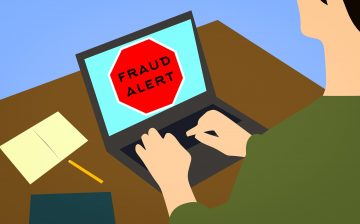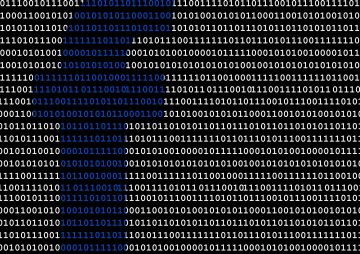What is the Difference Between Data Mining and Stealing Personal Information?

It's about time you start planning your summer vacation, and you're thinking a trip to Niagara Falls would be nice. You want to find some more information on what you can do once you get there, so you do a quick Google search and check out a few websites. Then, however, you remember that you can't make the decision without consulting your girlfriend, and since she's not around, you close the tab and go on to read the news instead. Suddenly, you start seeing ads about hotels near the Niagara Falls. How did that happen? Is someone watching you? In a word, yes, someone's watching you.
A data mining company saw that you're looking for information on the Niagara Falls. It now suspects that you're planning on going there, and some advertisers are taking advantage of this by presenting you with ads you're likely to click on.
Table of Contents
Is data mining a bad thing?
Why would a data mining company you've never heard of know where you're going on vacation? The truth is, this is what their business model depends on. They collect this data via cookies and scripts, and they then sell it to advertisers who, in turn, try to sell you something else (in this case, a stay in a hotel room).
From your personal perspective, this actually makes a fair bit of sense. After all, if you do decide to visit the Niagara Falls, you'll need to sleep somewhere, and an ad showing you a hotel is much more useful than an ad showing you a shady cryptocurrency of some sort.
What about your privacy?
With or without the relevant ads, you might still consider this a gross invasion of privacy. Before you jump to conclusions, however, you might want to understand what sort of information data mining companies collect. They are indeed interested in the fact that you're thinking of visiting the Niagara Falls. They're interested in a whole host of other stuff as well (e.g., what you're thinking of buying your loved ones for Christmas, what sort of music you like, etc.) What data mining companies don't want to know, however, is who you are.
They're after behavioral, not personal, data. They want to know what you're likely to spend time on. If you're likely to spend time on something, you're likely to spend money on it as well.
As cynical as it sounds, they don't care who's spending the money. As a result, data mining companies and advertisers aren't interested in your name or other personally identifiable information. And even if they were, there are legal barriers stopping them from obtaining it. For criminals, however, these legal barriers are no problem.
Stealing personal information is a completely different ball game
There are more than a few differences between mining data and stealing it. First of all, mining information is legal, and stealing it isn't. The people conducting the two types of operations are different, their goals are different, and the data they collect is different.
Cybercriminals aren't interested in your vacation plans. They're want your personal information – your name, your email, your passwords, your credit card and social security numbers, etc. They collect it either by stealing it from a vendor that stores it or by tricking you into divulging it yourself. If they get their hands on it, they'll try to steal your identity, enjoy some online shopping with your banking card or maybe issue another one in your name. Selling your personal data to other scammers is also an option. There's no shortage of people willing to abuse it.
Conclusion
Indeed, we have seen some data mining companies overstep ethical (and legal) lines, with the freshest example being Cambridge Analytica. It must also be said that the whole data collection happens silently which creeps out quite a few users. The truth is, however, if you don't like ads, and if you want to try and stay as anonymous as possible, you can take certain measures like installing an ad-blocker, using your browser's Incognito mode, or setting up a VPN program.
Having your personal information stolen has a lot more consequences than a few unwanted banners, and it's the thing that you should really look out for. Protecting yourself against it involves staying vigilant and carefully checking every single link you click as well as every single transaction on your credit card. In this day and age, it's really important to keep your wits about you when you're online.









The European Union law regulation has taken up some serious action against the way of storing data by the third party vendors. It is really a good way to standardize the security level.